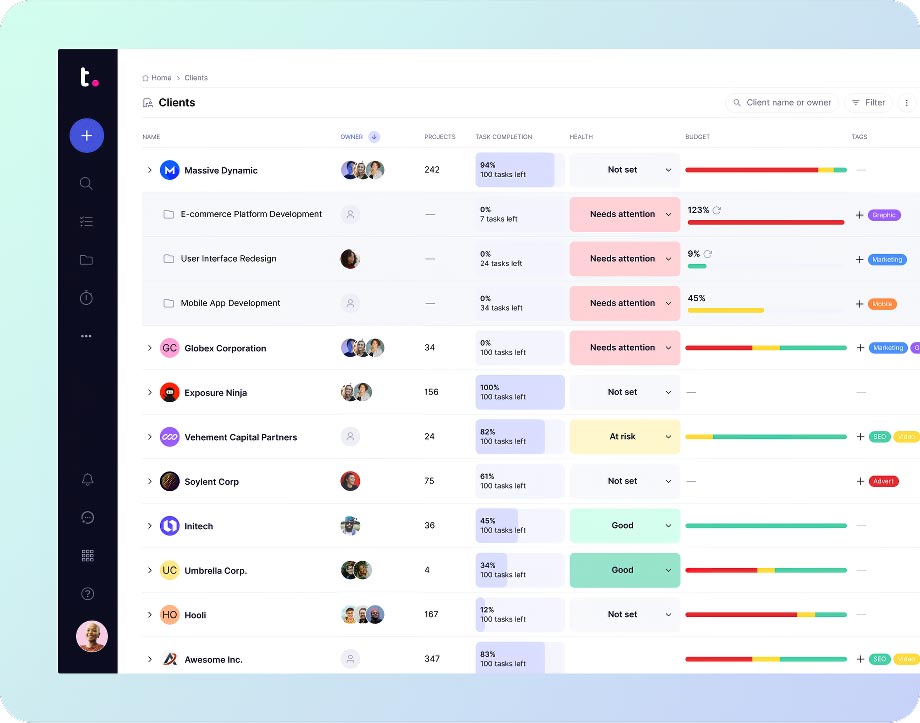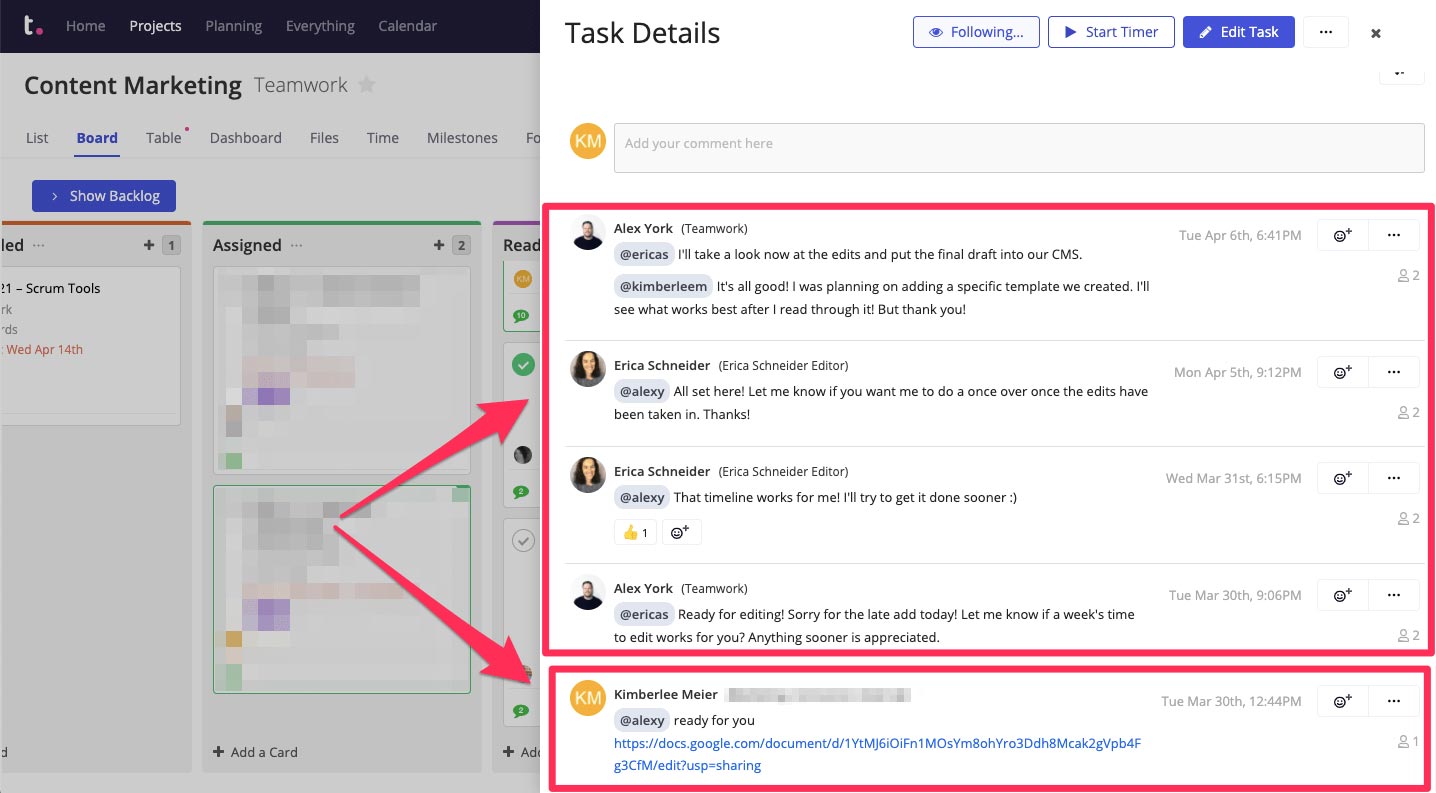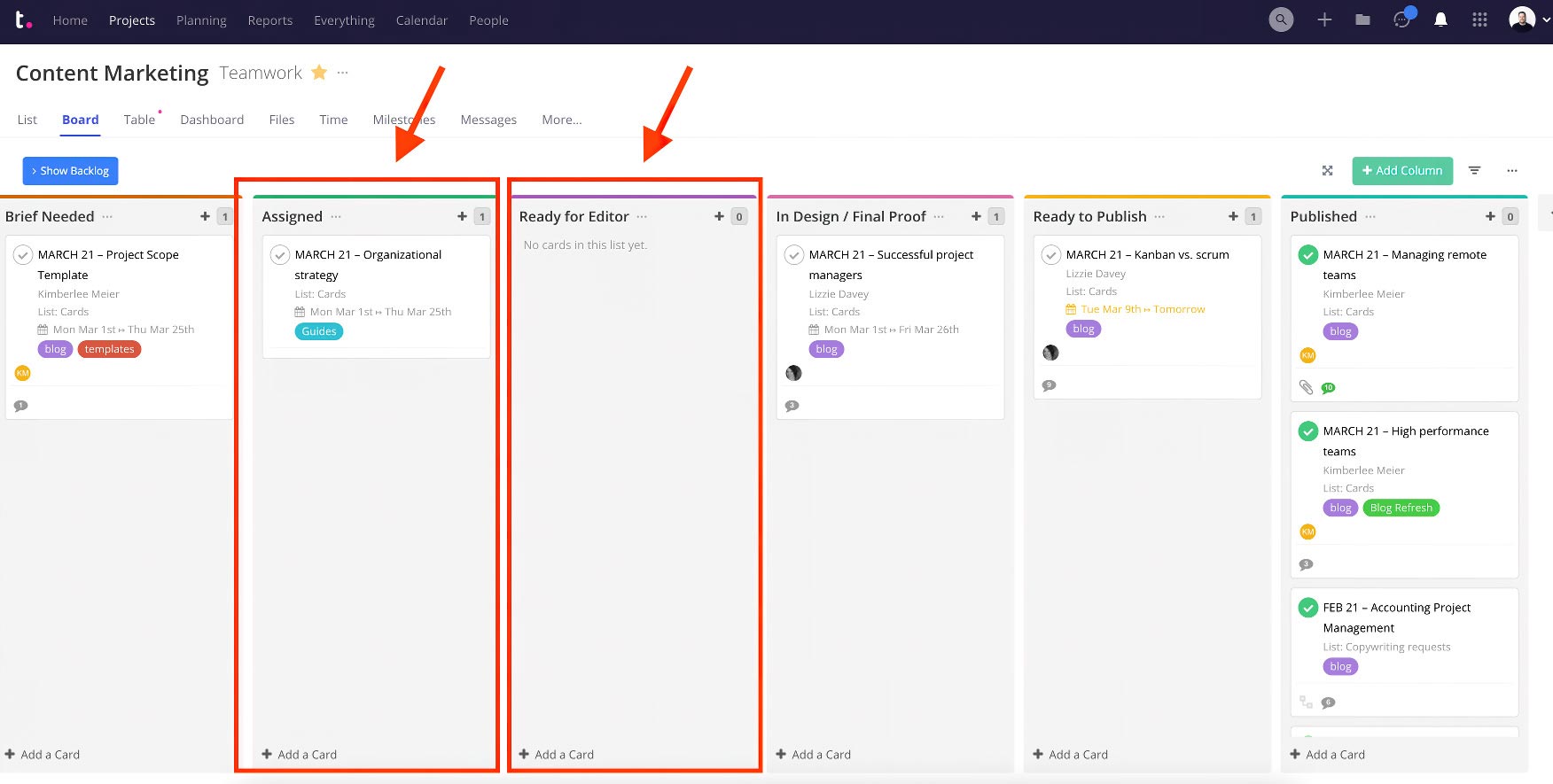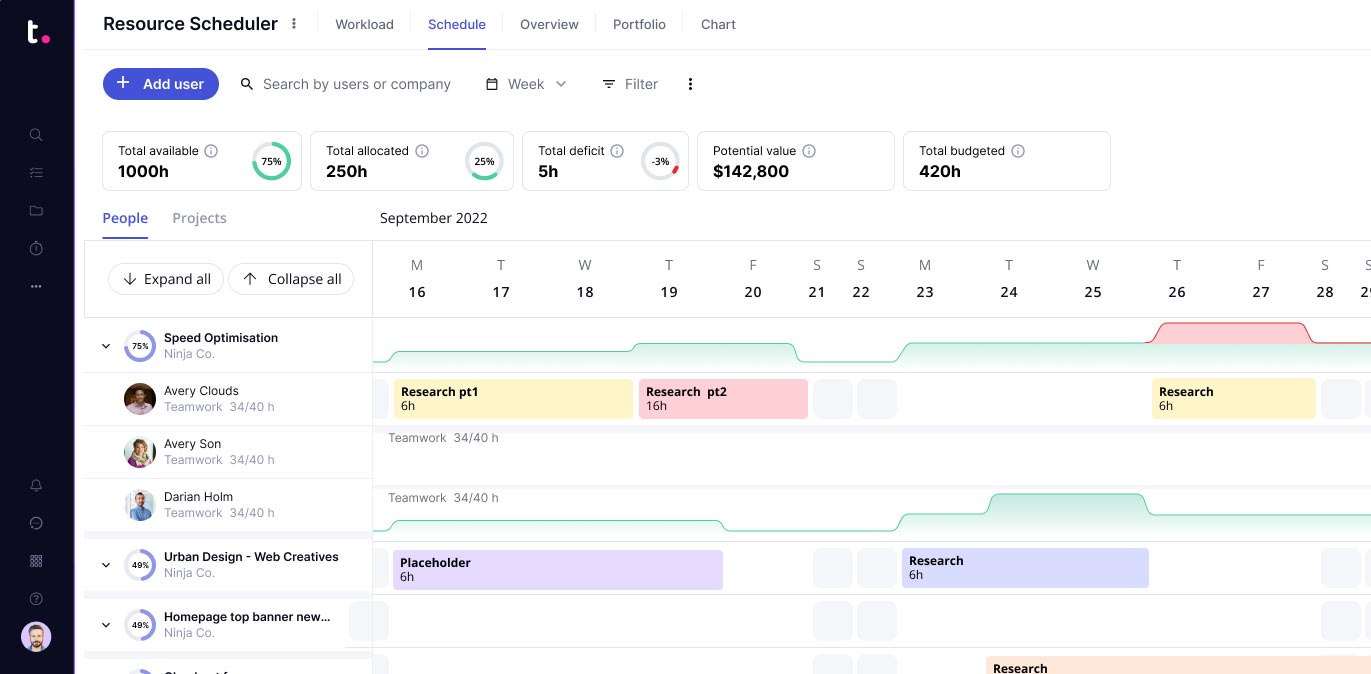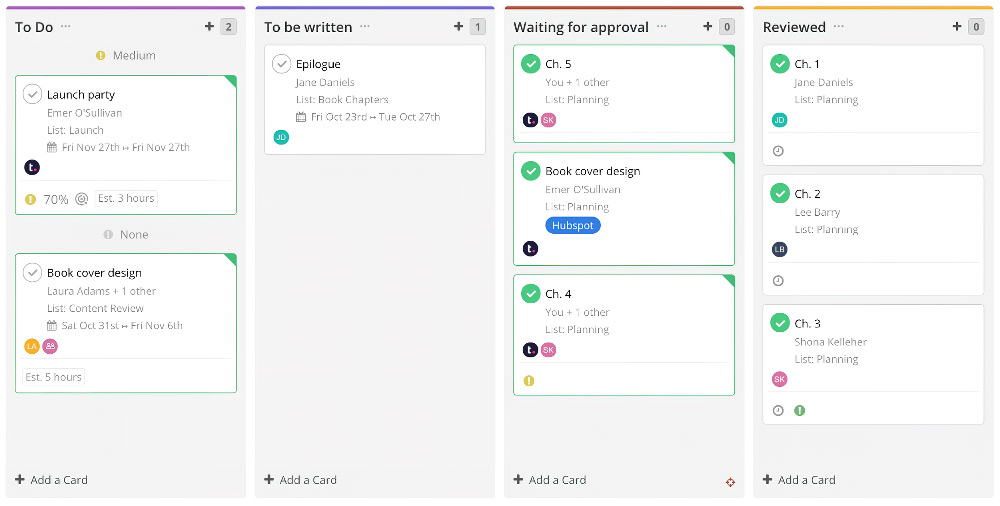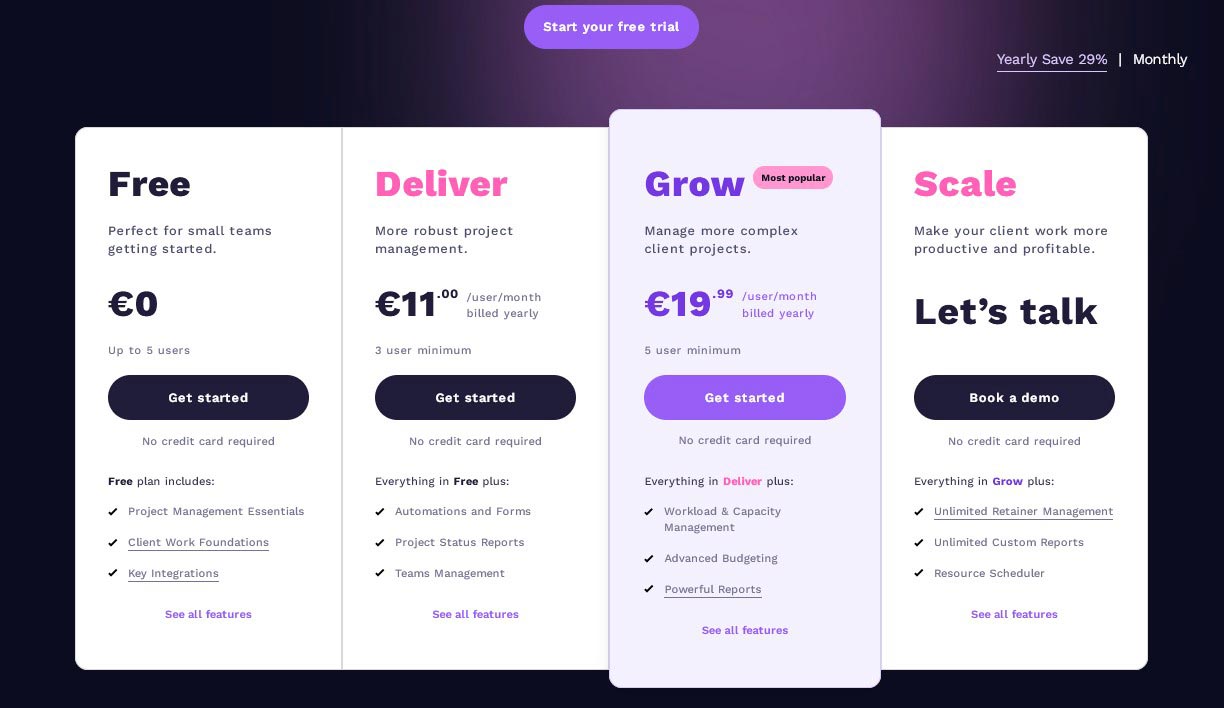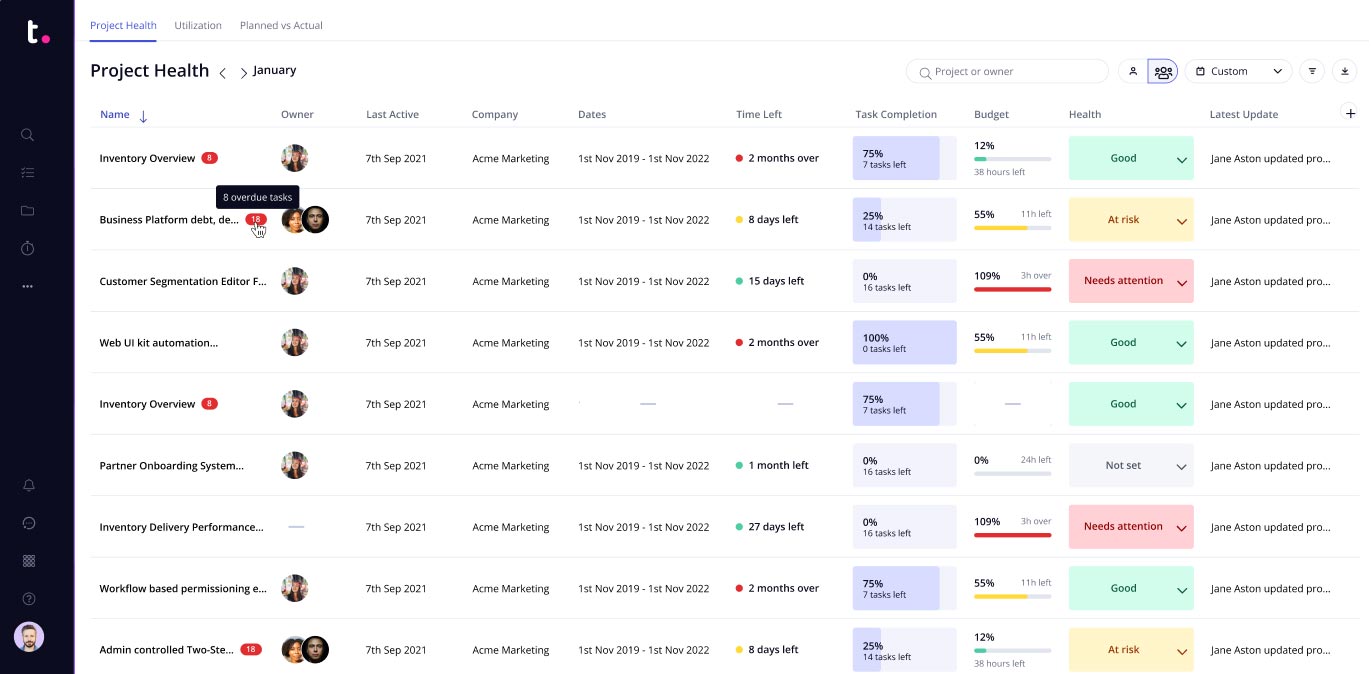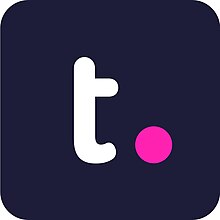
Teamwork Review: Pros & Cons
Pros & Cons of Teamwork
Pros
Extensive feature set.
Good value / price.
Good for working with many clients
Responsive customer support.
Cons
Steep learning curve.
Performance can be slow.
Frequent bugs reported.
Overwhelming notifications.
Teamwork's Standout Features
Teamwork packs a punch with its extensive feature set, making it a great bang for your buck. From my experience testing dozens of similar tools, Teamwork stands out by offering various capabilities without breaking the bank. It excels with many features, emphasizing task management, project initialization, and template usage. You can easily set up projects with customizable templates, streamline task assignments, and track progress with detailed reporting tools. Teamwork's integration options with other software make it versatile and adaptable to various workflows.
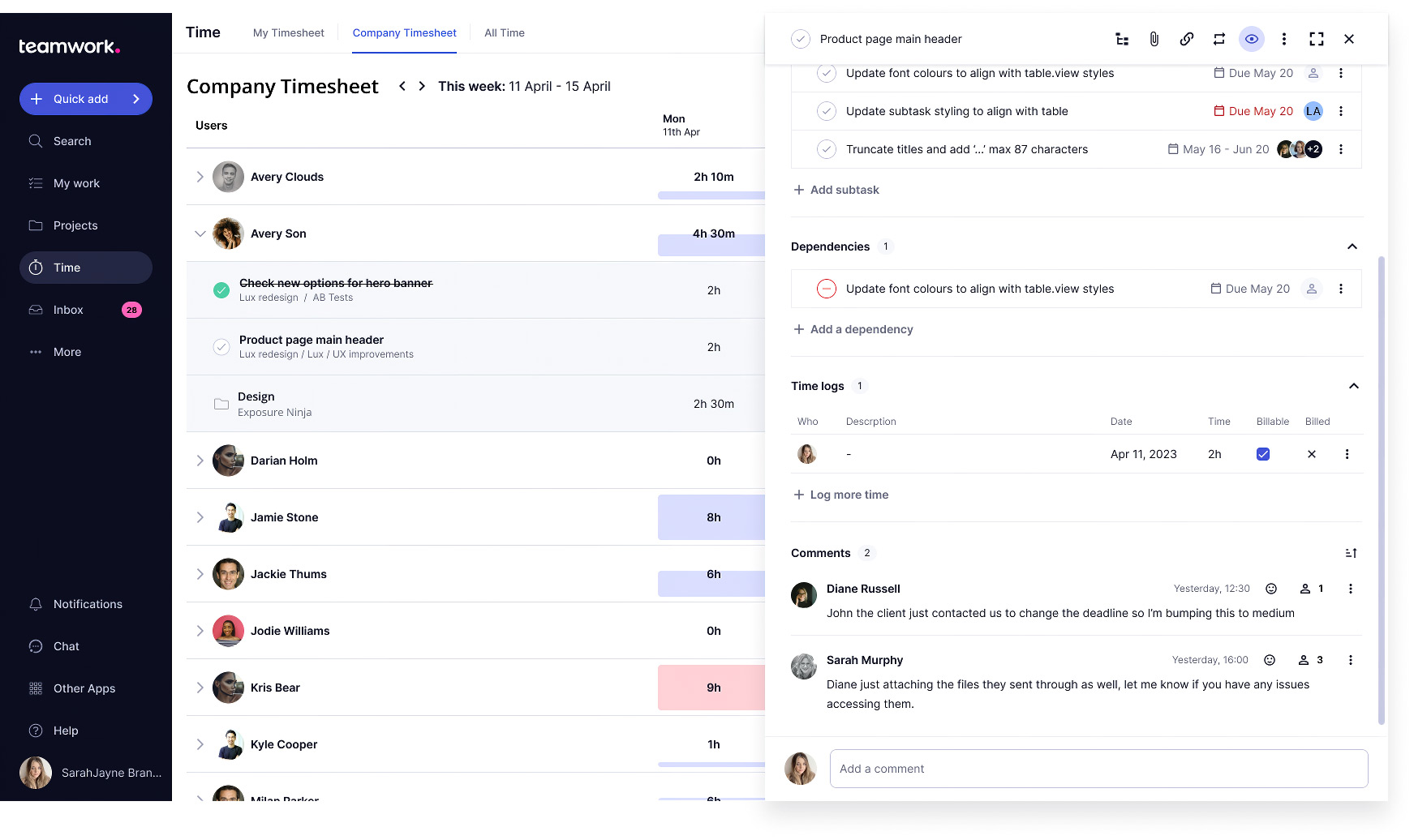
The most similar PM tool that comes close to Teamwork is ClickUp, particularly regarding its extensive feature set and affordable pricing. Both platforms offer a comprehensive range of tools that cater to various project management needs, making them cost-effective choices for many teams. However, this feature richness has a trade-off: Teamwork and ClickUp have steep learning curves. In comparison, Monday also offers an extensive feature set, but its pricing structure can be a drawback. While it starts at reasonable levels, the basic package often misses essential features like time tracking, which are crucial for many teams. To access these critical tools, users must upgrade to higher-tier plans, causing the cost to skyrocket to the next level. Both Teamwork and ClickUp manage to include these essential features in their more affordable tiers, providing better value for money overall.
Time-tracking and invoicing are where Teamwork truly shines, especially for teams that work directly with clients. The built-in time tracking allows for precise monitoring of hours spent on tasks, ensuring accurate billing. Teamwork excels in the simplicity and effectiveness of its time tracking, seamlessly integrating with other features like project management and invoicing. This integration ensures that tracked time can be easily converted into invoices, streamlining the billing process and making client management smoother and more efficient. Teamwork’s time-tracking capabilities come close to specialized tools like Paymo, which are known for their advanced time-tracking and invoicing features. The only significant difference is Paymo's automated time-tracking feature. Nevertheless, Teamwork's time tracking, ease of use, and comprehensive integration make it an excellent choice for companies that work with clients. Teamwork makes the invoicing process a breeze for businesses managing multiple client projects. It enables easy and regular invoicing based on your employees' hours, ensuring accurate and hassle-free billing.
Effective communication is at the heart of successful project management, and Teamwork also excels here. The platform includes efficient messaging tools, real-time communication, and the ability to communicate with external stakeholders and clients. However, to access the full suite of communication features, including Teamwork Chat, you must add the Teamwork Chat module, which requires an additional fee of $4 per user per month, billed annually. In comparison, Basecamp offers extensive communication features as part of its basic package. With Basecamp, tools like integrated chat (Campfire), message boards, and automatic check-ins are included at a flat rate of $299 per month for unlimited users. While this flat pricing model can be expensive for smaller teams, it becomes more cost-effective for larger teams due to its all-inclusive nature.
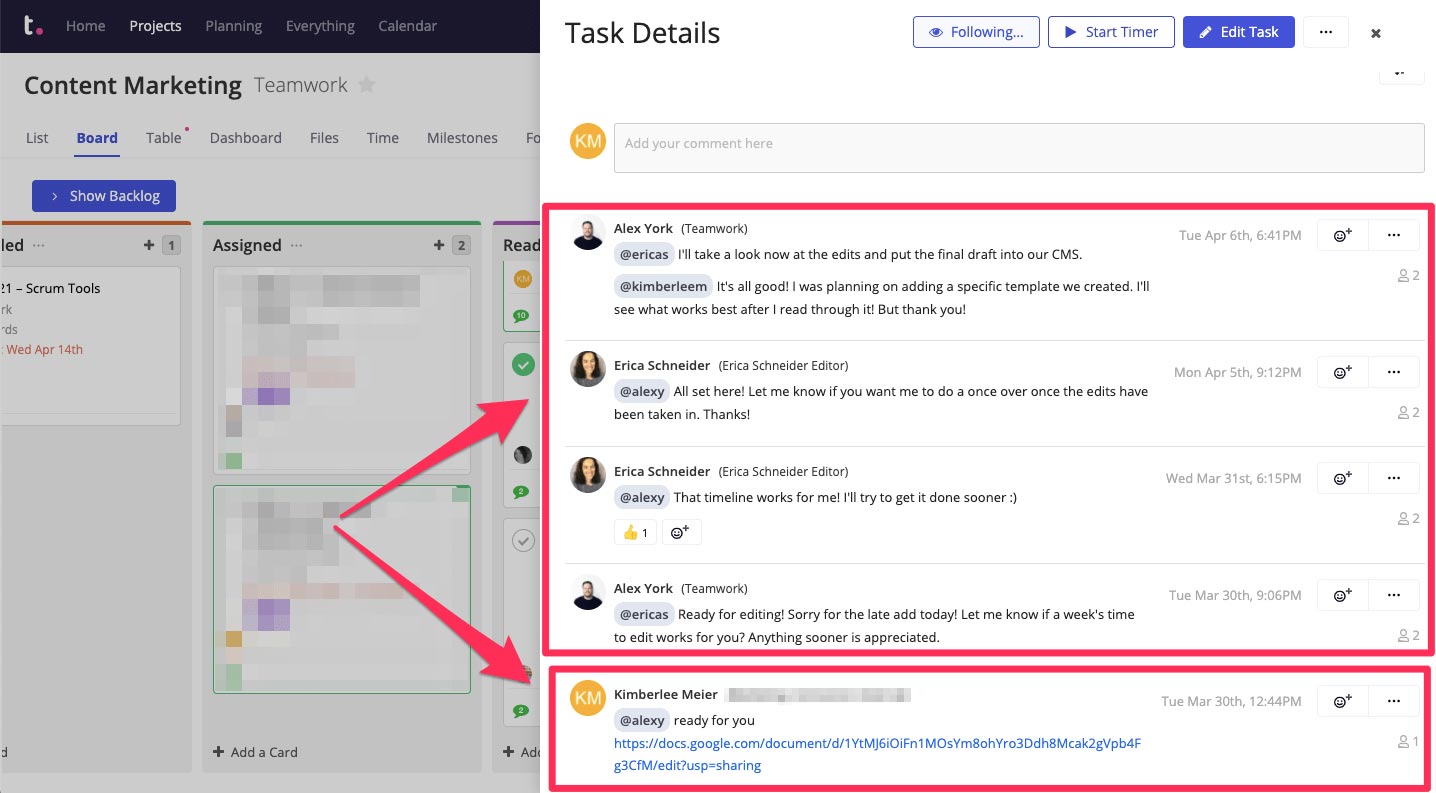
Teamwork's top-notch customer support stands out for its quick and helpful responsiveness and effective problem-solving capabilities. Available through various channels like live chat, email, and a comprehensive knowledge base, Teamwork's support team ensures users receive timely assistance. Compared to competitors like Monday, Asana, Redbooth, Wrike, or Notion, where support can sometimes be slow or unresponsive, Teamwork's support team is known for its rapid response times, often addressing queries within minutes.
Who Benefits Most from Teamwork
- Teamwork is great for marketing agencies that juggle multiple client campaigns. The tool’s task management, time-tracking, and invoicing features streamline campaign planning, monitor team efforts, and ensure accurate client billing. It keeps everything organized and professional in client interactions.
- Consulting firms can significantly benefit from Teamwork’s robust project management and communication tools. These tools help track billable hours and manage client projects efficiently. With real-time messaging and integration options, consultants can keep clients updated and maintain a smooth workflow.
- SaaS startups developing business software can rely on Teamwork to manage feature development, client onboarding, and support tickets. The platform’s customizable templates and task assignments ensure the team stays on top of their development roadmap and client needs.
What Users Love About Teamwork
From the hundreds of user reviews I scanned, it's clear that many users appreciate Teamwork's extensive features. One user mentioned, "Teamwork is a top-notch tool for project management," illustrating how effectively the tool oversees different project aspects. Another user noted, "The flexibility and broad base of tools, features, and functionalities make project management a breeze." Setting up new projects in Teamwork is also frequently praised for its simplicity. Users find the process straightforward thanks to user-friendly templates and intuitive configuration options. One user commented, "Setting up new projects is straightforward and flexible," and another added, "The project templates make starting new projects very easy and save time." These templates not only speed up the project initiation process but also ensure consistency and significantly reduce setup time, which is a huge benefit for busy teams. Users frequently praise the straightforward and organized nature of task management in Teamwork, with comments like, "Managing tasks is straightforward and organized," and "Task management is a strong point."
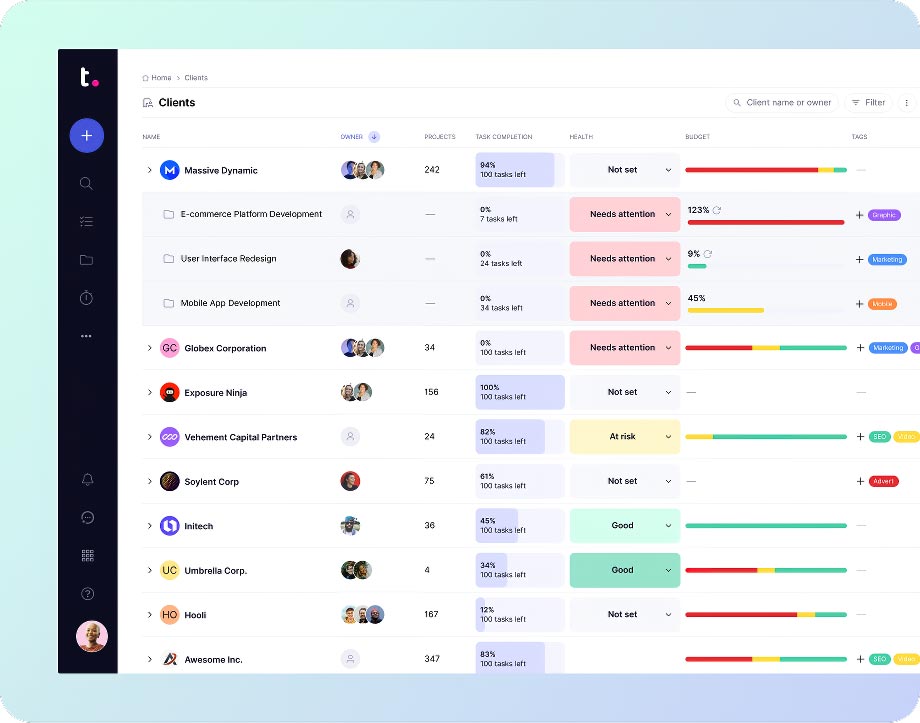
The simplicity of the time-tracking tools is also a significant plus. Users appreciate how easy these features are to use, making them accessible for all team members. Comments like "Time tracking is very simple and straightforward," and "User-friendly time tracking interface" reflect this sentiment. One user summed it up nicely by saying, "Simplicity of time tracking is a big plus," highlighting how this straightforward approach benefits overall project management.
Teamwork’s communication features significantly enhance team collaboration. Users often mention how the platform improves team communication and project outcomes. One review stated, "Teamwork has enhanced and improved our company’s project collaboration," while another user highlighted, "Great tool for team communication and collaboration." The real-time communication features, such as messaging and comments, streamline discussions and ensure everyone is on the same page, which is crucial for timely project completion.
Another aspect that users love about Teamwork is its responsive and effective customer support. You will notice this frequently if you check some public user reviews for Teamwork. Many users shared positive experiences, such as, "Support has been quick and helpful whenever needed," and "Customer support is very responsive." These reviews often highlight the support team’s promptness and efficiency in addressing concerns, significantly contributing to swiftly resolving issues. One user mentioned, "The support team is always quick to respond," while another added, "Customer support responds quickly and efficiently." Such feedback is common and underscores how the support team’s attentiveness enhances the overall user experience. The support team's effectiveness is not just about speed; many users also appreciate the quality of assistance provided. Comments like "Support team resolves issues effectively," and "Customer support is very effective in solving problems" indicate that users find the help they receive both timely and thorough.
In their reviews, users frequently mention that Teamwork offers great value for the cost. The platform's affordability, combined with its extensive feature set, makes it a worthwhile investment. One user noted, "Teamwork offers great value for the cost," while another said, "Affordable and worth every penny." Even though a few users complain about the price, there are way more who praise the value for money. Let's be serious; there will always be complainers, and the price is clearly not the cheapest, but from an industry-wide perspective, it's clear that Teamwork has a good value-to-feature pack.
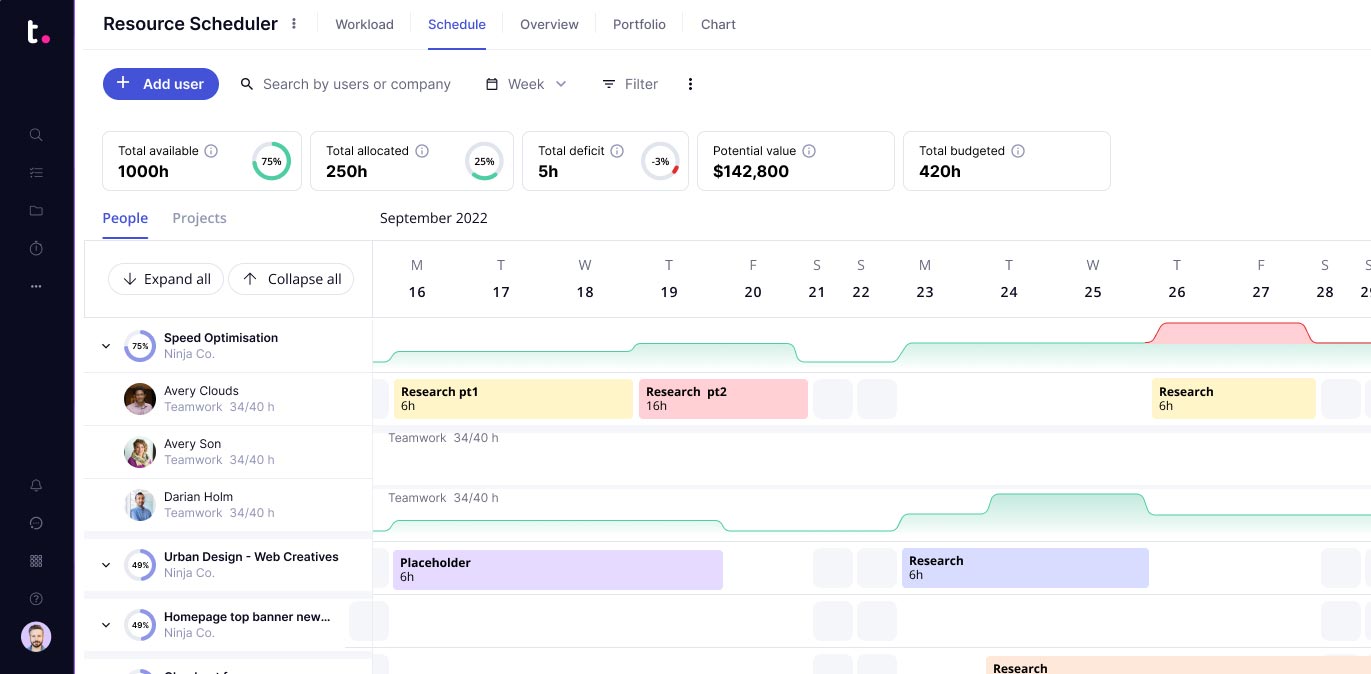
Top Complaints About Teamwork
Many users dislike the complexity and steep learning curve of Teamwork, often citing it as a major pain point. A common theme emerged from the hundreds of user reviews I scanned: "I found it could be a little complicated," and "the complexity can be overwhelming for new users." These complaints highlight that while the tool offers many features, navigating them can be cumbersome. This echoes my hands-on experience where setting up permissions and managing tasks was more time-consuming than more straightforward tools like Trello or Asana. The complexity is particularly daunting for smaller projects where such an extensive feature set feels excessive.
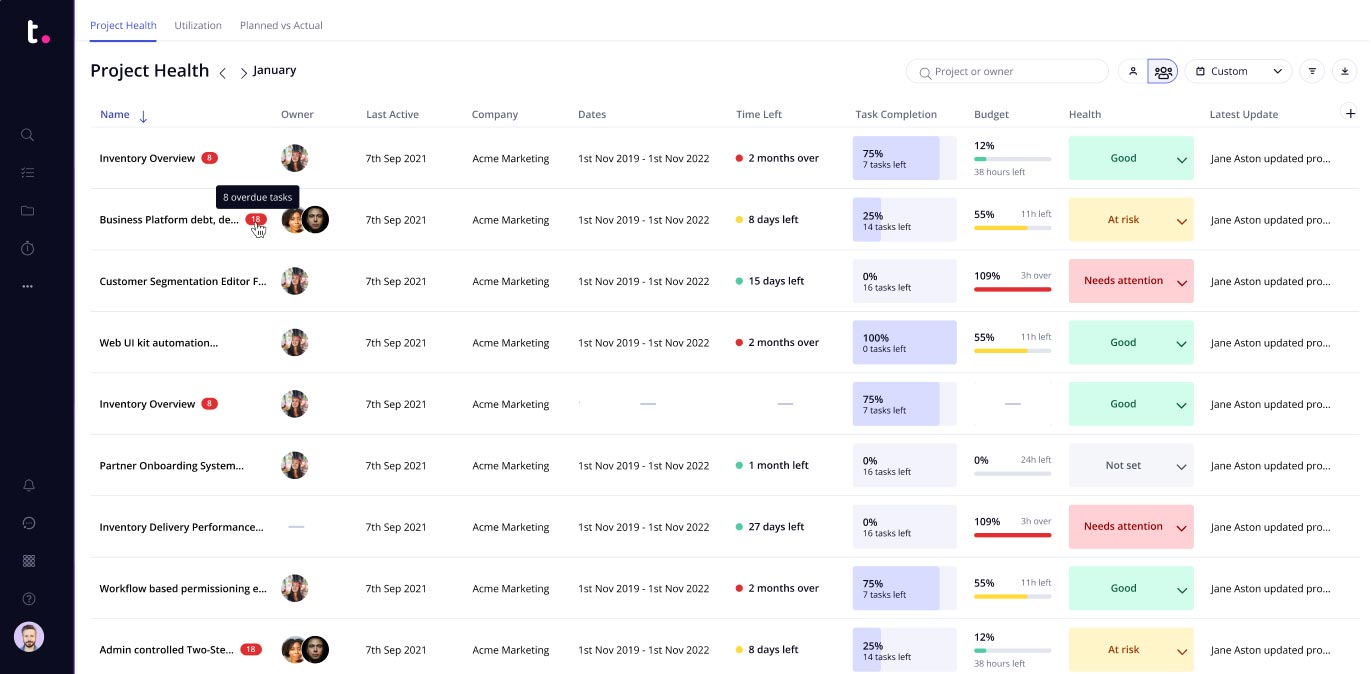
Performance issues are another significant problem. Users frequently report that Teamwork can be slow and unresponsive. One review noted, "The software can be slow at times," while another mentioned "Frequent lags and slow response times." When dealing with large projects, the system’s sluggishness becomes more pronounced, often frustrating users who expect a seamless workflow. This kind of problem tends to be more prevalent for tools with extensive feature sets. It makes sense because the complexity and interaction scale at unimaginable levels very fast. Similar tools focusing on extensive feature sets, like ClickUp, have similar problems.
Bugs and errors also disrupt the user experience. Several users complained about encountering frequent bugs that make the software unreliable. One user stated, "Too many errors while using the tool," and another said, "Software is buggy and error-prone." These issues can significantly hamper productivity, as dealing with unexpected glitches wastes valuable time.
Notifications are another area where Teamwork seems to fall short. Many users find the sheer volume of notifications to be overwhelming and distracting. Comments like "Notifications can be overwhelming" and "I don't love all of the email notifications" were common. The inability to manage and customize notifications effectively exacerbates the problem. Users have mentioned that "Managing notifications is not very user-friendly," which makes it hard to stay focused.
Another frequent complaint was Teamwork's outdated interface. Users described the design as old-fashioned and not up to modern standards. Phrases like "The design is outdated" and "User interface feels quite dated" were recurrent in reviews. This was particularly jarring for users accustomed to the sleek and contemporary designs of newer tools like Monday.com or Asana. However, by the end of 2022, Teamwork completely revamped its interface to align with more modern tools, addressing these concerns and significantly improving the user experience.
Teamwork vs. The Competition
Teamwork has an extensive feature set that includes task management, project templates, and strong time-tracking capabilities, making it a preferred choice for many users. Comparing it with similar tools, we find that ClickUp and Monday are the closest regarding feature richness and affordability, though they have unique strengths and weaknesses. ClickUp matches Teamwork by offering a comprehensive range of project management features at an affordable price. Both tools provide extensive capabilities for task management, time tracking, and project templates. However, ClickUp, like Teamwork, is often criticized for its steep learning curve due to its vast array of features. Users may find it overwhelming initially, and they also report occasional bugs and UI issues that disrupt workflow, adding to the complexity challenges similar to those faced with Teamwork. Given these similarities, ClickUp should be the first alternative to test if you want to switch from Teamwork to something similar. On the other hand, Monday offers a wide range of features but has a different pricing structure, which can be a drawback. While it starts at a reasonable price, accessing essential features like time tracking requires upgrading to higher-tier plans, making it more expensive than Teamwork and ClickUp. Users have noted that Monday’s interface is more modern and user-friendly, which can offset some of the initial learning difficulties. However, Teamwork has better features in the most affordable plan.
Paymo is another tool similar to Teamwork, especially regarding time-tracking and invoicing capabilities. Both tools integrate these features seamlessly with project management, making them ideal for client-facing businesses. Paymo offers advanced time-tracking features, including automated tracking, which Teamwork lacks. However, Teamwork’s integration of these features with project management and invoicing is highly praised for its simplicity and effectiveness. Paymo's main weakness compared to Teamwork is that it does not have such an extensive feature set. If you have a company that does a lot of client work and relies extensively on time tracking and invoicing, then Paymo should be the first alternative to try.
Basecamp offers good communication features like Teamwork and a flat pricing model that can be more cost-effective for larger teams. Its integration of communication tools like message boards and check-ins is strong, but its lack of advanced features like Gantt charts and detailed task dependencies, which Teamwork provides, can be a limitation. Basecamp’s more straightforward interface and focus on essential project management without overwhelming features make it easier for new users, but it might not meet the needs of more complex project workflows.
ActiveCollab and Asana both offer a balance of simplicity and visual appeal, shining where Teamwork has disadvantages. ActiveCollab is praised for its user-friendly interface and effective collaboration features, but it has a limited feature set that focuses on minimalism. It also falls short in customization and handling multifaceted assignments compared to Teamwork. With its visually appealing interface, Asana provides a user-friendly experience. However, it has limitations, such as allowing only one assignee per task, task-based work constraints, and weaknesses in reporting. Additionally, Asana’s higher pricing can be a barrier compared to Teamwork’s more cost-effective plans.
While Teamwork offers a robust and versatile platform with strong time-tracking and task-management features, Scoro provides a more integrated business management solution. Kantata excels in resource and financial management for professional services, and Microsoft Project is ideal for those working tightly within the Microsoft ecosystem, offering unparalleled planning and scheduling tools for large-scale projects. However, all of these alternatives are considerably more expensive compared to Teamwork.
Notion, Podio, and Hubstaff each cater to specific needs: Notion excels as an affordable, versatile tool with a more personal-centric approach to project management, allowing users to start from their notes and build a business around them through extensive customization options via templates, though it lacks some advanced PM features; Podio is known for its high degree of customization, allowing users to build their customized project management tool, but this can be limited compared to specialized tools; Hubstaff stands out for its detailed employee monitoring features, including regular screenshots and URL tracking, which are highly valued by managers but can be seen as intrusive and less intuitive for general project management use.
Price and Cost Comparison
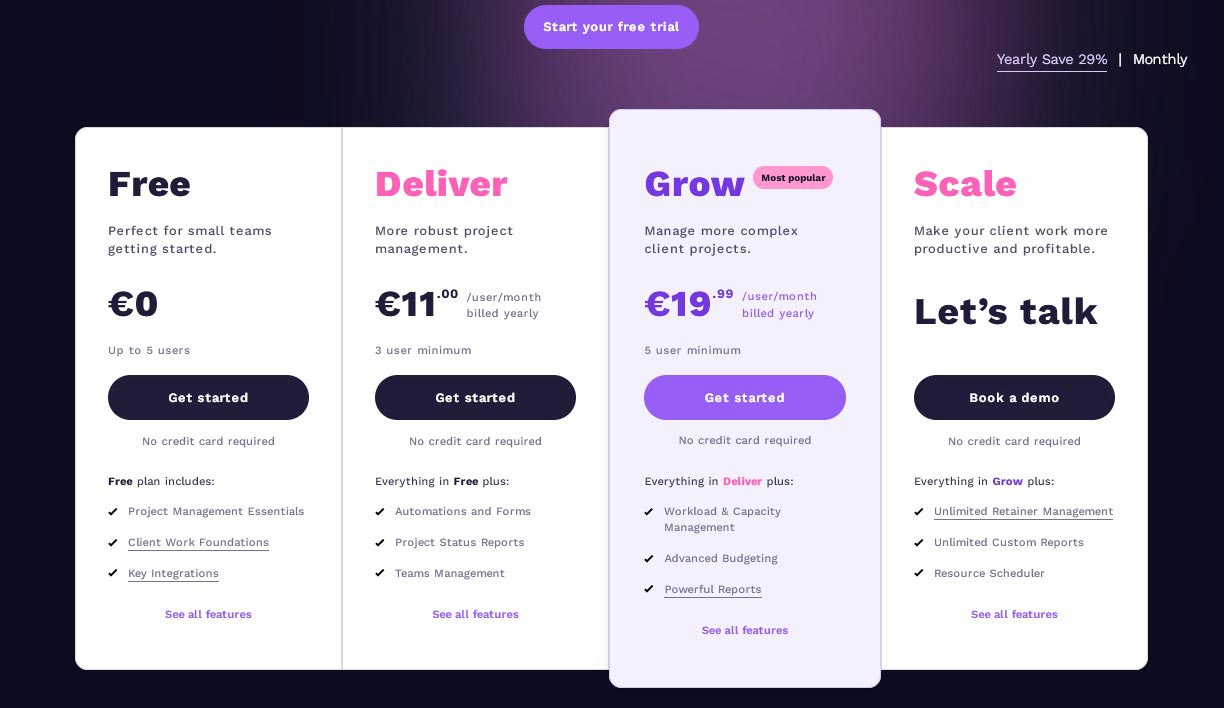
Teamwork offers four plans. The Free plan is up to 5 users and includes basic project management features. The Deliver plan costs $11/user/month (billed yearly) for a minimum of 3 users and adds automation and project status reports. The Grow plan is $19.99/user/month (billed yearly) for a minimum of 5 users and features workload management and advanced budgeting. The Scale plan has custom pricing and includes unlimited retainer management and custom reports.
Teamwork's pricing falls in the mid-range category. Other mid-range tools include Asana and Monday.com, both starting at $11 per user per month, Microsoft Project starting at $10 per user per month, Toggl Plan at $9 per user per month, and Podio with plans starting at $11.20 per user per month.
Budget-friendly options include Freedcamp, which offers a free plan and tiered paid plans starting at $1.49 per user per month; Paymo, which starts at $5.9 per user per month; and ClickUp, which starts at $7 per user per month.
Higher-priced tools include Scoro, which starts at $22 per user per month and goes up to $55 per user per month, and Kantata, which averages around $45 per user per month with a custom pricing approach. This puts Teamwork in a balanced position, offering competitive features at a mid-level price point.
Teamwork’s Privacy & Security
Teamwork provides a comprehensive security framework that aligns with industry standards. By implementing encryption, secure data storage, 2FA, regular security audits, and data backups, Teamwork ensures that user data is protected against various threats. This level of security is consistent with other primary project management tools, making it a reliable choice for those prioritizing privacy and security.
What sets Teamwork apart in terms of security is the ability to purchase additional security features through their Advanced Security Add-On. This includes:
- Single Sign-On (SSO):
- Custom SSO via Security Assertion Markup (SAML), enhancing login security and user convenience.
- Network Access Policy:
- IP Whitelisting: Restrict access to specific IP addresses.
- Domain Restrictions: Prevent invitations to certain email domains.
- Automatic Log Out:
- Set automatic logout periods for users, enhancing session security.
Teamwork does not offer data residency options or a dedicated security team like Smartsheet. It also lacks a bug-hunting program similar to Trello or Jira.
Teamwork complies with GDPR, ensuring that user data is handled in accordance with European data protection regulations. This compliance includes giving users control over their data, including access, correction, and deletion options. While most major project management tools ensure GDPR compliance, using niche or less popular tools might pose challenges in this regard.
Teamwork's Update Frequency
Teamwork is committed to maintaining a continuously improving platform with weekly updates. They have a detailed roadmap, a feature missing in most project management tools, ensuring users are well-informed about upcoming changes. A significant update at the end of 2022 addressed major user interface issues, a common point of complaint in user reviews. This update included a comprehensive user interface redesign, enhancing usability and navigation to meet user needs better. Recent updates also include enhanced reporting capabilities and new integrations, such as advanced filtering options in project views and streamlined task management features.
When comparing update frequencies across the industry, Teamwork, ClickUp, Monday, and Smartsheet stand out with their weekly update schedules. This frequent update cadence ensures that users consistently have access to the latest features and improvements, providing a dynamic and responsive user experience.
On the other hand, many platforms adhere to a monthly update schedule, which is the industry average. These include tools like Basecamp, Hubstaff, Jira, Kantata, Microsoft Project, Paymo, Scoro, TrackingTime, Trello, and Wrike. Then, there are tools like ActiveCollab and Notion, which update less frequently. ActiveCollab has released seven significant updates over the past two years. Notion usually updates every few months.
Teamwork Company History
Teamwork was founded in 2007 by Peter Coppinger and Daniel Mackey. With their web design and software development background, the duo saw the need for a better project management solution. They aimed to create a tool to streamline team collaboration and project management. Starting with a small team in Cork, Ireland, they focused on building a product that addressed the gaps they experienced in other software.
Veterans with over 20 years of experience include Microsoft Project, which launched in 1984; Basecamp, initially known as 37signals and founded in 1999; and Jira, which began in 2002.
In the established category, with 15-20 years in the industry, we have ActiveCollab and Wrike, both started in 2006 and Smartsheet, founded in 2005.
Maturing tools with 15-20 years of history include Teamwork, founded in 2007; Asana, founded in 2008; Paymo, founded in 2008; Redbooth, founded in 2008; Freedcamp, founded in 2010; and Podio, founded in 2009.
Expanding tools with 10-15 years in the market include Trello, which began development in 2010 and launched in 2011; Hubstaff and Monday.com, both from 2012; ClickUp, publicly launched in 2014 but developed since 2012, Notion from 2013, and Scoro also from 2013.
In a crowded field of both long-standing and emerging project management tools, Teamwork occupies a solid middle ground. With over 15 years in the market, Teamwork has moved beyond its early start-up roots to become a significant player that balances feature richness with usability.
Finally, we have the newcomers: Toggl Plan, launched in 2017; Flowlu, established in 2018; and Kantata, established in 2022 through the merger of Mavenlink and Kimble.
In a crowded field of both long-standing and emerging project management tools, Teamwork occupies a solid middle ground. With over 15 years in the market, Teamwork has moved beyond its early start-up roots to become a significant player that balances feature richness with usability.
The Final Verdict on Teamwork
Teamwork offers a comprehensive project management platform that effectively balances feature richness with affordability. Its strengths lie in extensive task management, time-tracking, and invoicing capabilities, making it a reliable choice for businesses handling multiple client projects. While the feature set may present a steep learning curve, users often find the tool invaluable once they navigate these complexities. Users also appreciate its responsive customer support, significantly enhancing the overall experience. Despite some performance issues and an initially outdated interface, recent updates have addressed these concerns, ensuring a smoother, more efficient user experience. Teamwork's regular updates further solidify its position as a versatile and dependable project management solution.
Written by Remus Zoica

